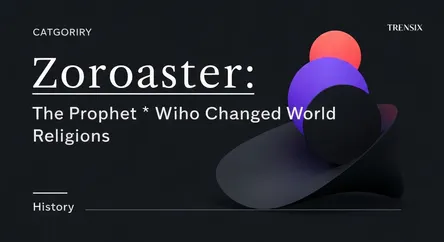History
Zoroaster: The Prophet Who Changed World Religions

Discover Zoroaster, the ancient Iranian prophet whose teachings on monotheism and dualism profoundly influenced the course of human religion and ethics.
What is it?
Zoroaster, also known by his native name Zarathustra, was an ancient Iranian prophet and religious reformer who founded the religion of Zoroastrianism. Flourishing in ancient Persia before the 6th century BCE, his teachings challenged the existing polytheistic beliefs of his time. Zoroaster introduced a faith centered on the worship of a single, wise creator god, Ahura Mazda. The core of his doctrine, recorded in sacred texts called the Gathas, revolves around a cosmic struggle between Asha (truth and order) and Druj (falsehood and disorder). This ethical dualism posits a constant battle between the benevolent spirit, Spenta Mainyu, and the destructive spirit, Angra Mainyu.
Why is it trending?
Zoroaster's teachings are historically significant for their profound influence on major world religions, particularly Judaism, Christianity, and Islam. Concepts such as a single creator god, a final judgment, heaven and hell, and the idea of a savior or messiah are believed by many scholars to have roots in Zoroastrian thought. His philosophy emphasizes free will, making humans responsible for their choices between good and evil. The central ethical code of "Good Thoughts, Good Words, Good Deeds" provides a timeless and universal moral framework that continues to resonate and be studied in comparative religion and philosophy.
How does it affect people?
For followers, known as Zoroastrians or Parsis, the teachings of Zoroaster provide a comprehensive guide for life. This centers on personal responsibility to uphold truth and purity in all aspects of existence. The religion promotes the sanctity of natural elements, especially fire, which is seen as a symbol of Ahura Mazda's purity and wisdom. On a broader scale, Zoroaster's philosophical legacy has indirectly affected billions. The dualistic concepts of a cosmic struggle between good and evil, an ultimate judgment, and the belief in angels and demons have become foundational elements in the Abrahamic faiths that have shaped global culture, ethics, and law.